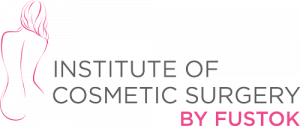Abdominoplasty
Abdominoplasty is a generic word that means any plastic surgery on the abdominal wall (skin and muscles).
The surgery may include work and repair on the muscles and facias. It is not unusual to encounter one or multiple unsuspected hernias that will be repaired as well. Once the work on the muscles is completed then various ways of skin tightening is done to achieve the desired outcome.
It is an outpatient procedure. This may or may not involve a 23 hours overnight observation stay in the hospital.
Depending on what is being done the surgery takes between two to three hours. Afterward the patient spends another hour and half recovering from the general anesthetic before the patient can be discharged to the care of a family member or a friend. The patient will not be allowed to drive home and should not be alone the first post operative night.
There are risks involved in any surgery; such as infection, Seroma, hematoma. Any time surgery is performed will result in scarring. The scars can vary considerably depending on the way the person heals. Scars can be either normal to thick or raised to keloid in nature. Genetic, health condition, nutrition, immune system, stress, all play a role in the qualities of the scars. If the person has any scars already that can give an indication as how the future scar can look. Yet on the same person scar do vary depending on its location and orientation. The placement of the scars, the location, and length vary depending on the individual.
It is very important to avoid abdominal distention due to food. That is why the patient will be on liquid diet initially and as the healing progresses the diet will be adjusted accordingly.
The patient will be suited with a garment before leaving the operating room. That girdle will be worn all the time until told otherwise. The dressing changes will be done at the office by Doctor Fustok and the staff. It is recommended that patient not touch the bandage without checking with the doctor.
The patient will be put on clear liquid diet following the surgery.
The wounds should not be allowed to get wet for eight to nine days. In case of the presence of a drain that may be extended until the drain is out.
The decision to put a drain or not is made by Dr, Fustok at the time of the surgery as required by the condition of each patient. If a drain is there the patient will be instructed as how to care for it. It will be removed by Dr. Fustok at the office when it is time.
The patient is encouraged to ambulate and avoid sitting or sleeping for a long time. Moderate movement enhances the healing and prevent formation of blood clots in the legs. Too much hard activity can delay healing and cause potential complications.
It depends on the requirement of the work. Sitting behind a desk can be resumed within a couple of weeks while work that requires strenuous activities may require additional time off . If the healing is eventless work may be resumed sooner.
No two individuals are alike; each person will be evaluated according to the person health, history, healing and disposition and advised accordingly.
If everything is healing properly the patient can drive an automatic with power steering wheel within 6 days. Care must be taken not to drive while taking any pain medication.
These are answers to the most common asked questions. We feel the more informed our patients are the better we feel. This information was not meant to be exhaustive or complete. Dr. Fustok will give you additional information during the consultation and will answer to the best of his knowledge any inquiry. Surgery is an art not an exact science.
